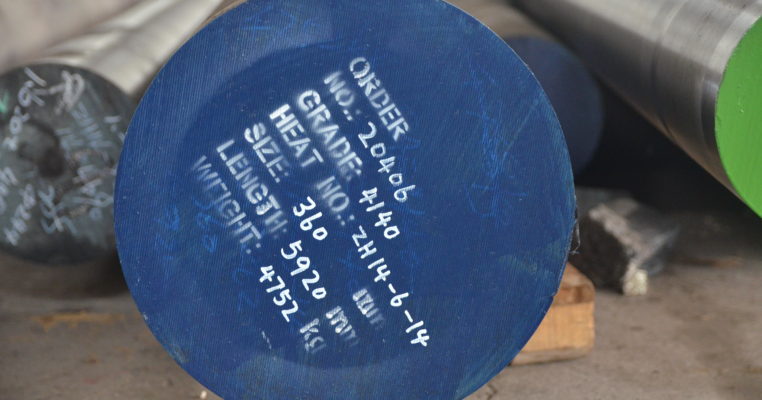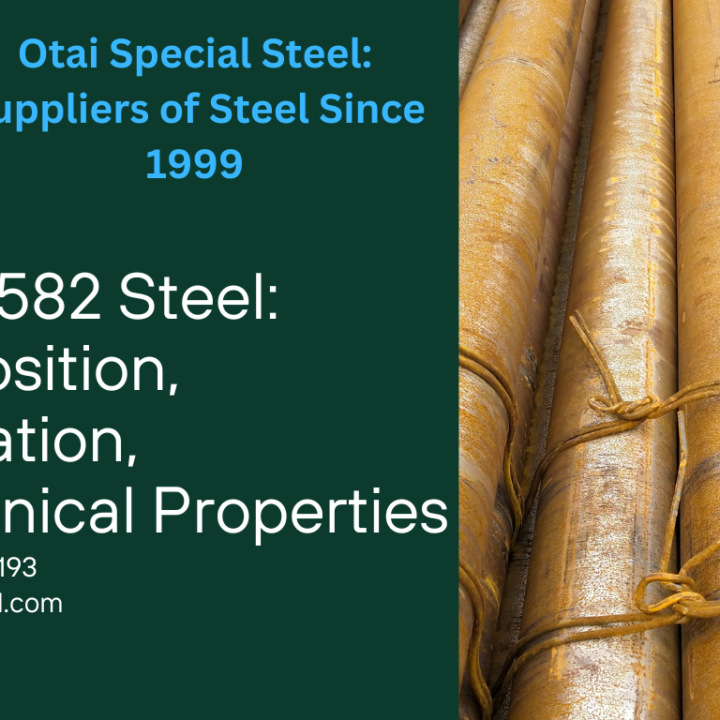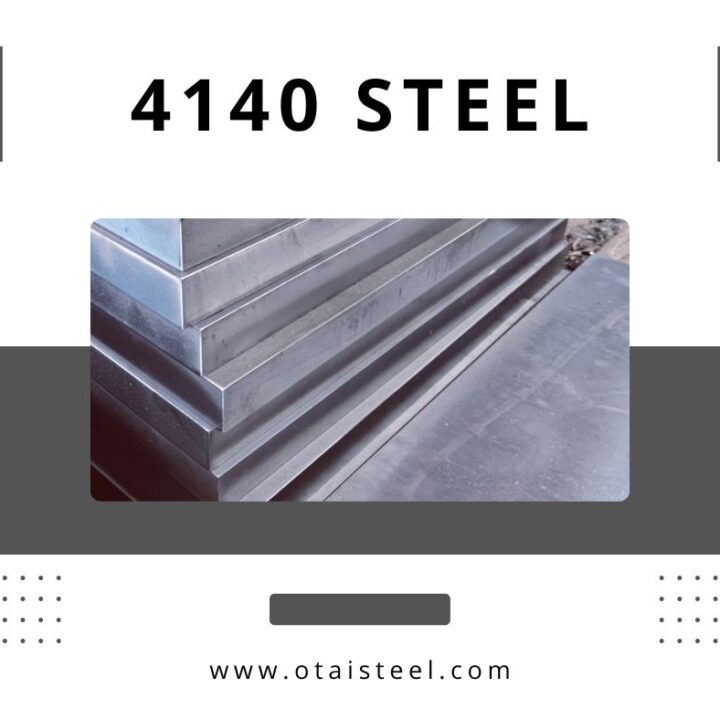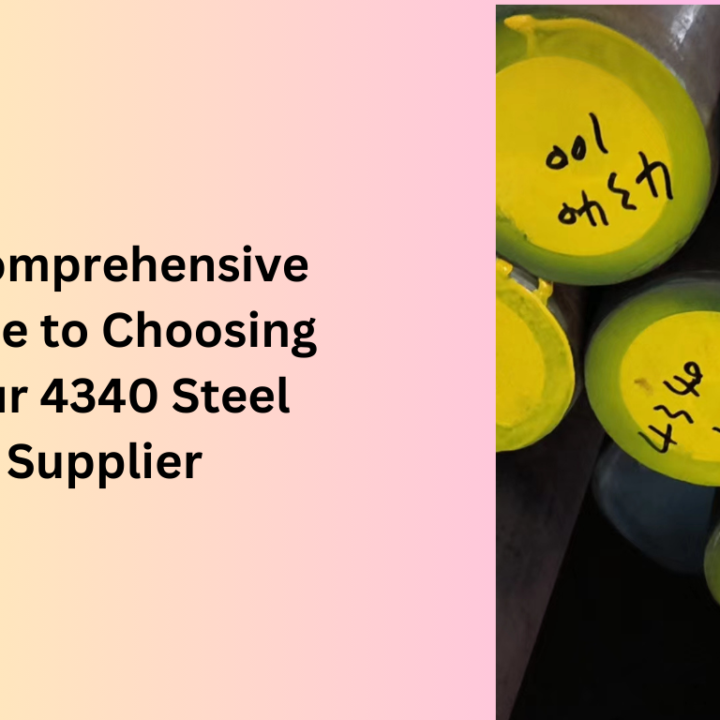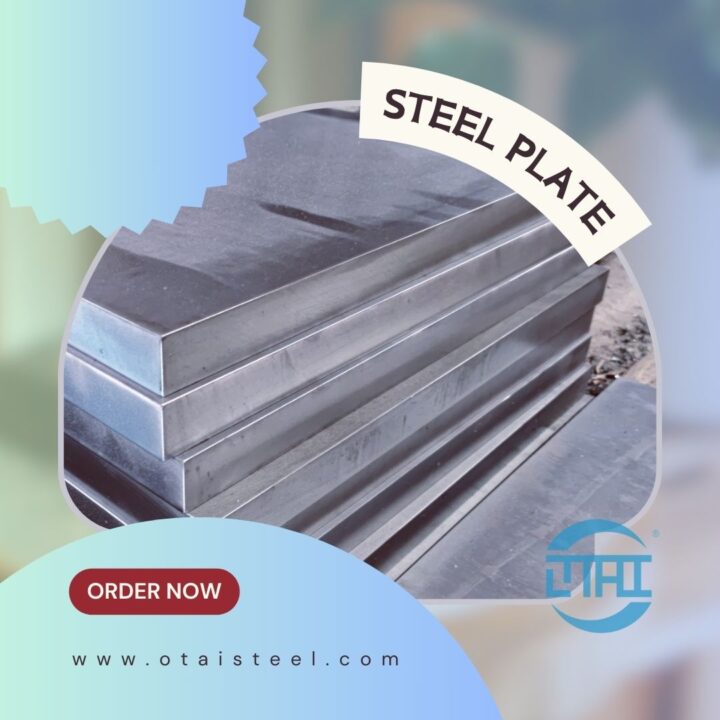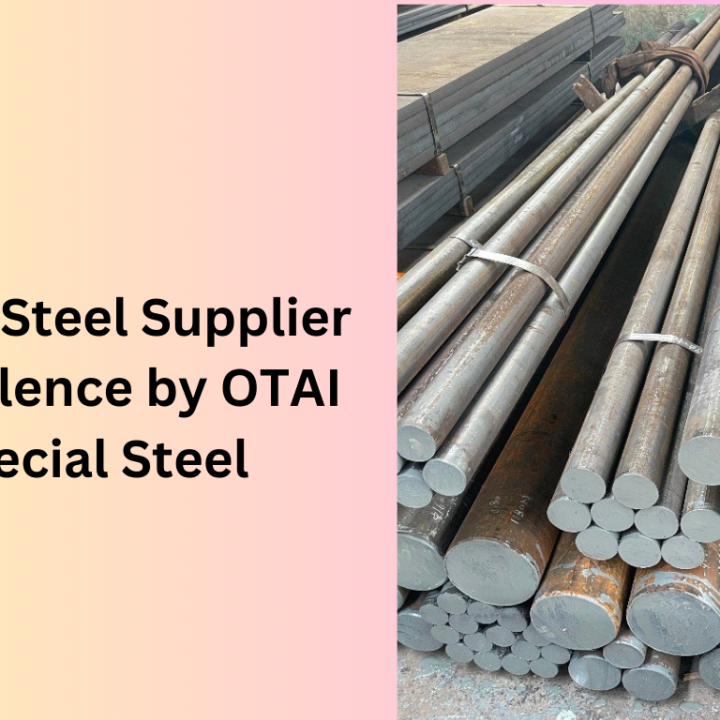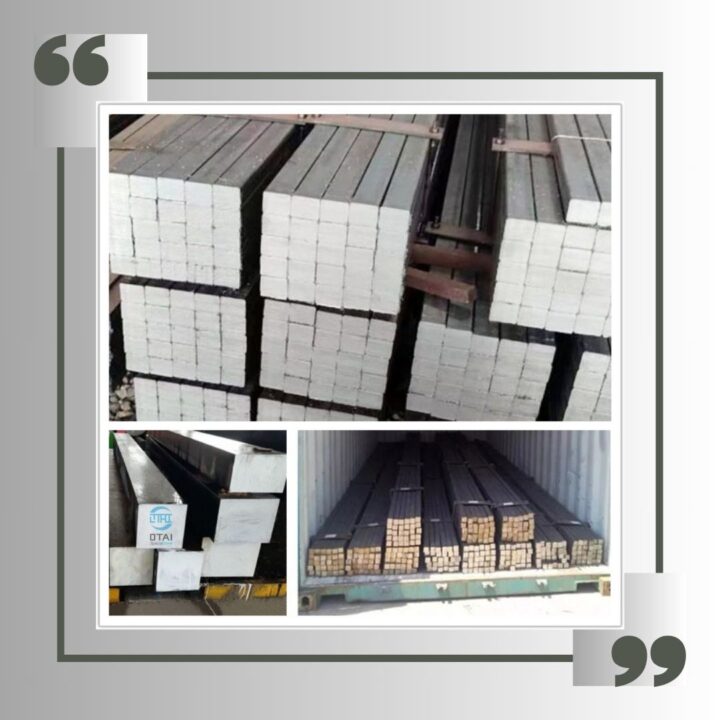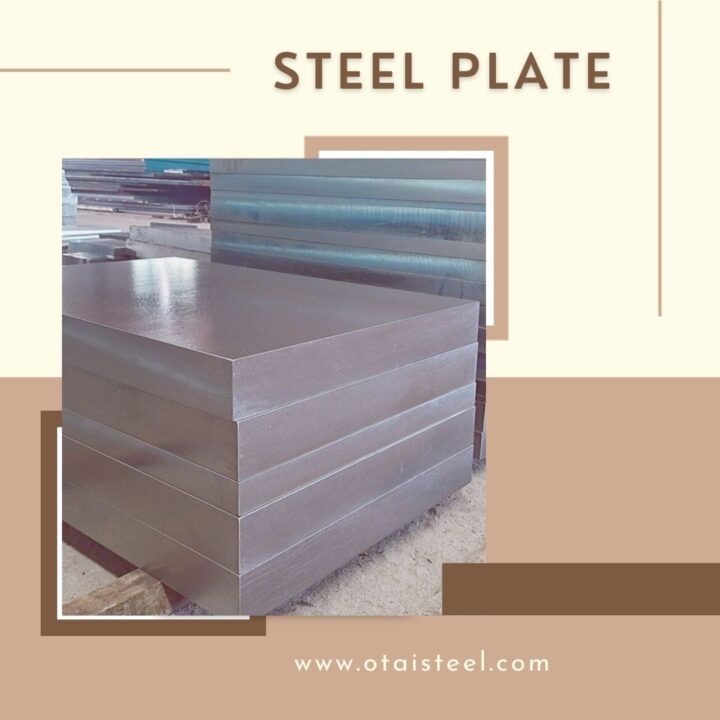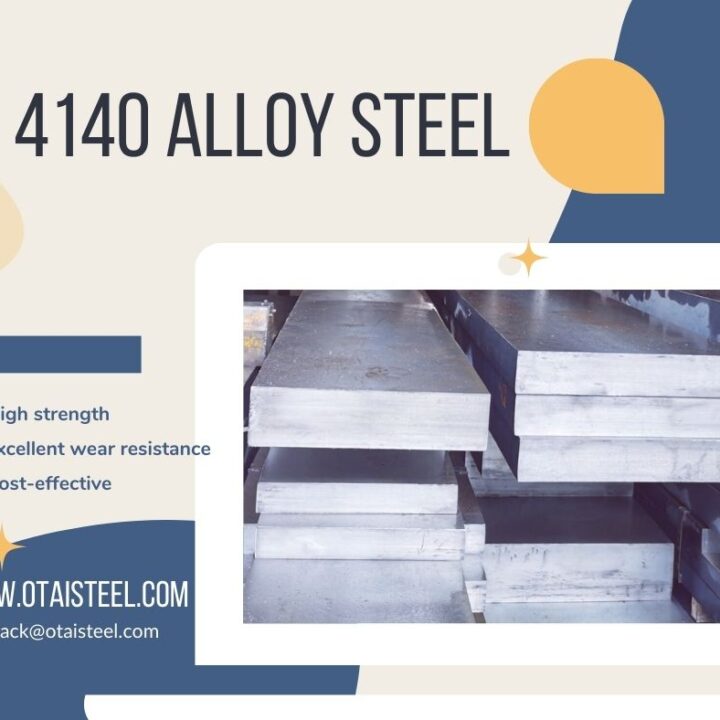AISI 4140 steel is a low alloy steel containing chromium, molybdenum, and manganese. It is widely used across numerous industries and is an excellent material choice due to its toughness, high fatigue strength, and abrasion and impact resistance. Not many grades can match the versatility and usefulness of 4140. Otai Special Steel provide AISI 4140 plate and round bar in any size always .
AISI 4140 Steel
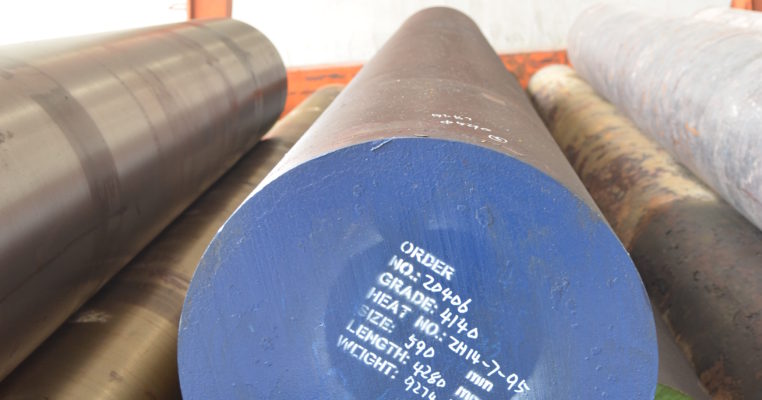
How is AISI 4140 Steel Made?
AISI 4140 is made by placing iron, carbon, and other alloying elements into an electric furnace or oxygen furnace. The major alloying elements added to AISI 4140 are:
Chromium
Manganese
Molybdenum
Once the iron, carbon, and other alloying elements have been mixed together in liquid form, it is allowed to cool. The steel may then be annealed; possibly several times.
After the annealing is complete, the steel is heated to a molten phase again so that it can be poured into the desired form and can either be hot worked or cold worked through rollers or other tools to reach the desired thickness. Of course, there are other special operations that can be added to this to reduce mill scale or improve mechanical properties.
Mechanical Properties of 4140 Steel
AISI 4140 is a low alloy steel. Low alloy steels rely on elements other than just iron and carbon to enhance their mechanical properties. In AISI 4140, additions of chromium, molybdenum, and manganese are used to increase the strength and hardenability of the steel. The additions of chromium and molybdenum are why AISI 4140 is considered a “chromoly” steel.
There are several important mechanical properties of AISI 4140, including:
Tensile Strength: AISI 4140 steel typically has a target ultimate tensile strength of around 95,000 psi.
Toughness
Ductility
Hardenability
Chemical Properties
The table below highlights the chemical composition of AISI 4140:
C Cr Mn Si Mo S P Fe
0.38-.43% 0.80-1.10% 0.75-1.0% 0.15-0.30% 0.15-0.25% 0.040% max 0.035% max Balance
The addition of chromium and molybdenum promotes corrosion resistance. The molybdenum can be particularly useful when trying to resist corrosion due to chlorides. The manganese in AISI 4140 is used to increase hardenability and as a deoxidizer. In alloy steels, manganese can also combine with sulfur to improve machinability and make the carburizing process more effective.
AISI 4140 Steel
